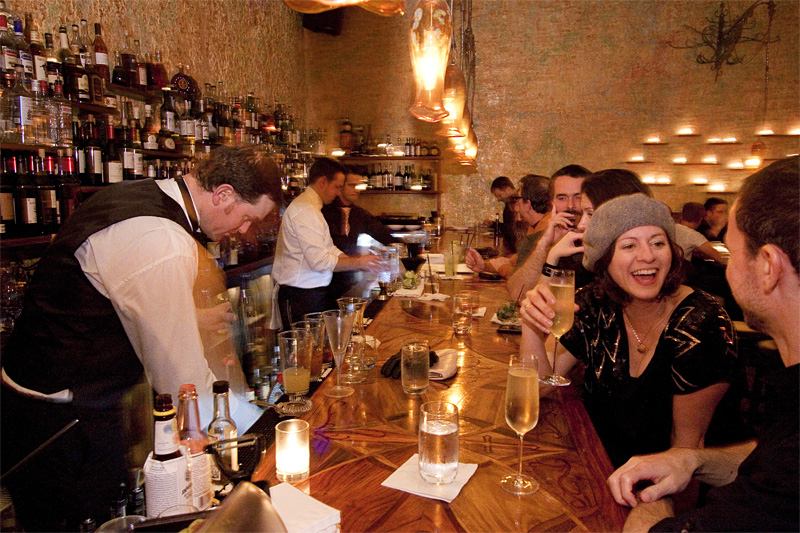Restaurateur must rank with opera singer, private detective, and poet on the list of most over-romanticized careers. “It’s a tough life, a tough business,” says Anthony Anton, president of the Washington Restaurant Association. “And with 1.8 percent profit margins, it doesn’t take much to put you upside down.” According to Anton, slightly less than half of all restaurants in the state—including fast-food franchises—see their five-year anniversary. The industry’s extremely low profit margins, crushing workloads, and intense competition cause one in every six Seattle restaurateurs to fail within the first year alone.
In fact, what’s more amazing to me than the number of brave souls that fail every year is the number that succeed. How have the folks who’ve made it to 20 surmounted the long, sere plateau that marks their passage from new to established restaurant?
Anyone you speak to in the restaurant business will cite the three essentials: good location, good service, and consistent quality. They’ll also tell you that these concepts take nothing to mention and Herculean effort to ensure. Nick Wiltz, owner of 31-year-old Il Bistro, also cites a fourth essential, good atmosphere— the intangible details like lighting, comfortable seats, music, and room temperature that diners subconsciously respond to.
Keeping your name fresh in people’s minds is also critical. Some advertise, some hire PR firms. Some restaurants hold wine dinners and special events. Some send or e-mail newsletters to their regulars; Tamara Murphy of Brasa generated huge buzz for her “Life of a Pig” dinner, where she prepared dishes using meat from pigs whose lives she’d witnessed and chronicled on her blog. Many, many chefs appear at farmers markets, television shows, and benefit dinners.
But the other aspect of the job—restaurateur as businessperson—is even less glamorous. Anton says he sees a lot of new restaurateurs who find that it’s one thing to make a great version of your grandma’s pasta sauce and another to know how to keep your labor costs down and maintain food costs below 30 percent of your total expenses. “If you’re not looking at those numbers at all times,” he says, “you’re not going to be keeping your doors open.”
“Being very tiny helps, for sure,” says Bruce Naftaly, chef of Le Gourmand, which he has owned with his wife, Sara, since 1985. Labor costs are one of the largest expenditures for restaurants, whose rooms can be packed one night and empty another, so when the head cook co-owns the restaurant with the front-of-house manager, the two most costly positions are covered. ‘Course, taking a vacation means shutting down for a few weeks.
Even restaurateurs who don’t work the line or greet every customer who walks through the door have to keep their hand in at all times. “Over the years,” says Carmine Smeraldo of 22-year-old Il Terrazzo Carmine, “I’ve seen how people get successful and tired, and then delegate. I do delegate—but then I have to check up on” the delegate. He mentions on the phone that his hands are coated in starch and flour from showing his chef de cuisine how to make arancini (rice fritters) to replace a side dish that wasn’t cutting it.
Tom Douglas, whose five restaurants and event space employ 400 people, says that restaurateurs have to keep examining what customers are buying, and tailor their menus to match. “There are a lot of egos out there who refuse to bend to the whims of customers,” he says. “You don’t have to sacrifice quality to give people what they want.” At the Palace Kitchen, Douglas notes, business was good but not sensational until he put a burger on the menu to appeal to late-night diners. Now the burger makes up 20 percent of food sales, filling the room to capacity and allowing the cooks to experiment with more adventurous techniques, such as curing salami and making chèvre.
Most of all, say these pros, the secret of success is to stay energized and passionate about your work. “You have to give your heart and soul to your customers,” says Smeraldo, “and your clientele will recognize you for striving to care for them.”
Jonathan Kauffman






